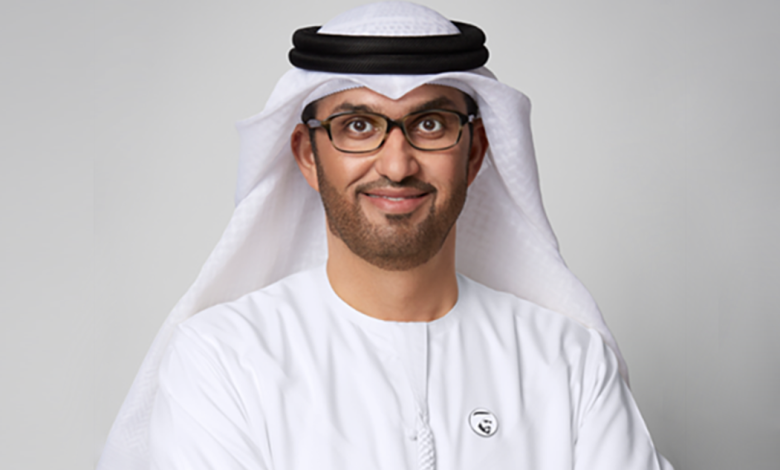Sultan Al Jaber: A Crucial Ally for Climate Action?

When the United Nations selected the United Arab Emirates to host the 2023 climate summit, many environmentalists were skeptical. How could a country so reliant on oil truly commit to fighting climate change? The announcement that the president of the UAE’s national oil company, Sultan Al Jaber, would lead the conference only intensified criticism. However, these doubts may be misplaced. Al Jaber has shown himself to be a crucial ally for the climate movement, advocating for investment in clean energy technology like nuclear and hydrogen power, and emphasizing the need for a united, all-of-society approach to decarbonization.
During a recent visit to India, Al Jaber outlined the gravity of the challenge ahead. He conveyed the UAE’s desire to help India meet its ambitious clean energy goals. He called for more investment in decarbonization technology, including nuclear and hydrogen power. And he endorsed an all-of-society approach that mobilizes every sector and asks more of development banks and financial institutions.
Al Jaber recognized the need to confront the issue that many see as the biggest obstacle to meaningful action on climate change: the continued use of fossil fuels. He acknowledged that mitigating the climate impact of these fuels is essential during the transition to cleaner energy. Furthermore, he rejected the notion that the energy industry’s interests are inherently at odds with those of the climate movement, arguing that they share a common interest in working together to address this urgent issue. By taking this stance, Al Jaber demonstrated a willingness to engage with critics and work towards finding solutions that benefit everyone.
There’s no escaping the fact that the world still needs oil and gas and will for some time, a reality that Al Jaber’s critics tend to ignore. Fighting climate change is not a question of ending all oil and gas production immediately, but of developing sufficient clean power to phase it out as quickly as possible — and doing so in a way that strengthens economies and lifts living standards, through policies that are “pro-growth and pro-climate at the same time,” as Al Jaber put it.
To be sure, Al Jaber has a financial interest in oil production, but he has a stake in the clean-energy industry, too. He’s the founding CEO and current chair of Masdar, which aims to generate 100 gigawatts of renewable power by the end of the decade, a goal that exceeds those set by some larger European nations. If every nation aimed to produce as much per-capita renewable power over the next seven years as the UAE, the fight against climate change could be transformed.
To their credit, most global leaders have supported Al Jaber’s appointment and the UN’s decision to host this year’s COP in the UAE, including President Joe Biden’s special climate envoy, John Kerry. But skepticism is inevitable, which puts an extra burden on Al Jaber to deliver.
As he prepares for November’s summit, it’s critical that Al Jaber ramp up pressure on rich countries to honor their financial commitments to the developing world; push development banks and sovereign-wealth funds to expand their ambitions; and help overcome barriers to greater private-sector investment in clean-energy projects, especially in the developed world.
He can also dispel some of the public skepticism about his appointment by taking aim at the biggest obstacle standing in the way of major climate progress: coal-fired power plants. Clean energy is now cheaper than coal power in much of the world, and where coal still has a price advantage (often because of subsidies), new public-private partnerships — like the one the G-20 forged with Indonesia last year — can help nations speed the transition.












